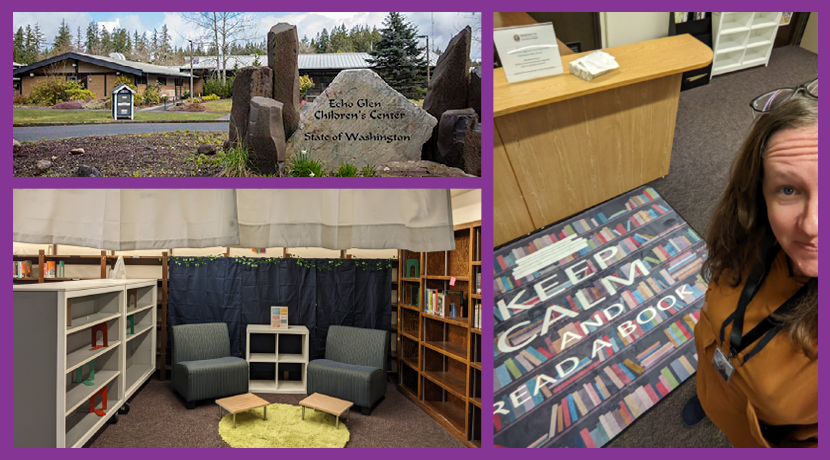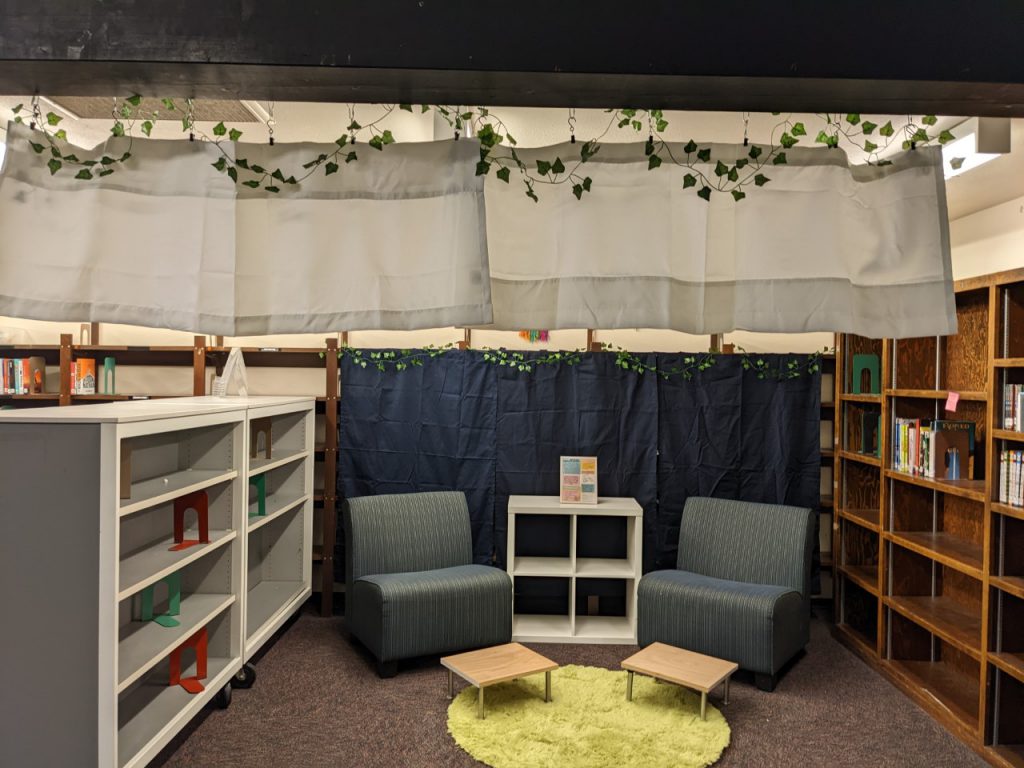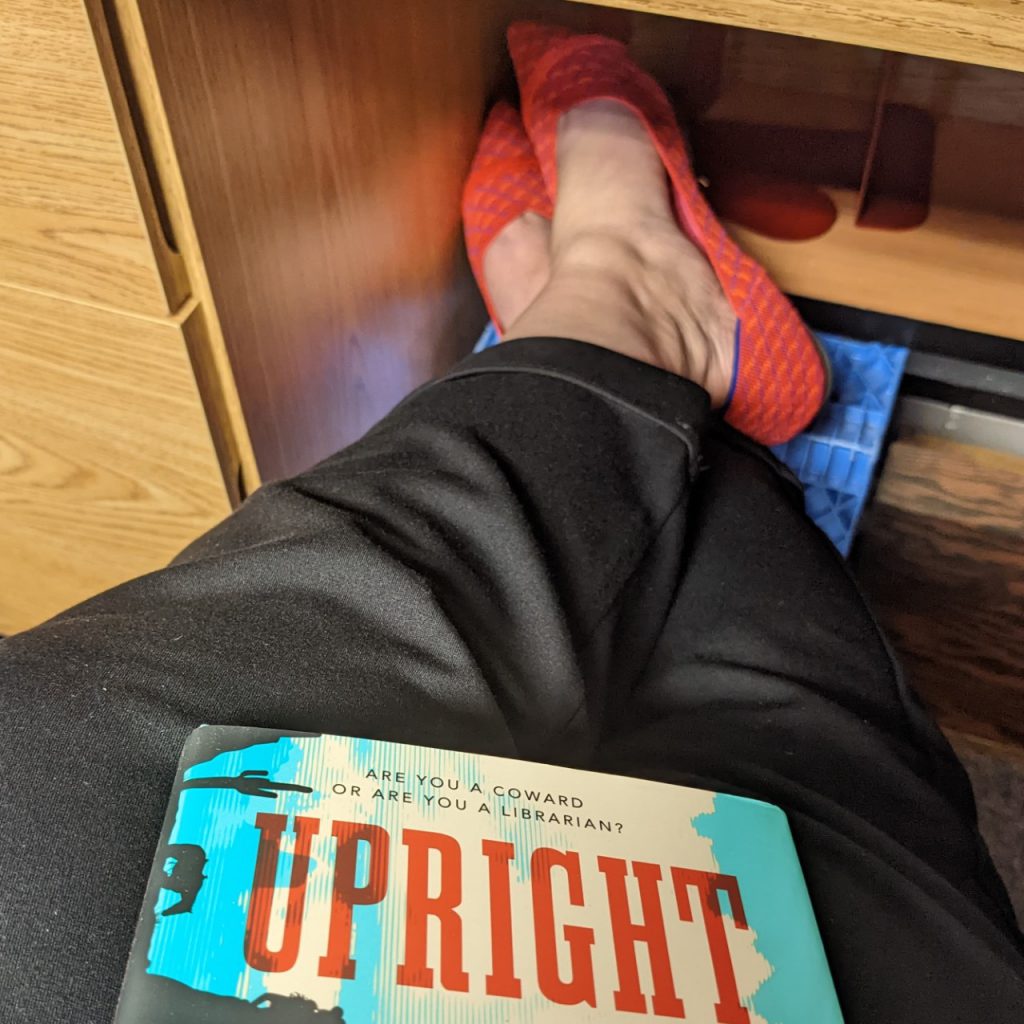
INSTITUTIONAL LIBRARY SERVICES: A VIEW FROM THE NEW

Meet Jen Haas. She recently joined Washington State Library’s Institutional Library Services (ILS) and is the Branch Librarian at the Snoqualmie-based Echo Glen Children’s Center branch of the State Library, ILS’s first-ever state library for incarcerated youth.
Read on as she reflects on her experience as a librarian and what brought her to ILS.
“One of my favorite quotes from novelist and diarist Anais Nin compels us to reflect that, ‘…the day came when the risk to remain tight in a bud was more painful than the risk it took to blossom,’” said Jen.
This quote led to a huge change in her life and brought her to where she is today. “Sometimes a person can reach a point in their life and career that in hindsight they recognize as an epiphany, and for me that point came in the form of a quote — how very librarian of me!”
Jen came to librarianship late, despite having thought about being a librarian her whole life. In graduate school she had an opportunity to teach in her field, and that opportunity became a 22-year career as a high school teacher. After more than a decade in the classroom, she decided to return for another graduate degree in library and information sciences. Several years later, while working as a full-time school librarian and part-time history teacher, she came across the Nin quote.
“Something about that quote bored its way into my brain and had me reminiscing about a younger version of me who wanted to work for change, for justice, for those who don’t always have a voice,” Jen said. “I loved working with teenagers, but I was still missing something. And then prison librarianship found me. Where better to serve people on the margins, to truly live my values, and use my years of experience and my education?”

Is this job easy? “No,” said Jen.
Working with people who are incarcerated can be challenging, and training — while thorough and useful — cannot conceivably address every possible situation. Starting a new library for incarcerated youth comes with another set of challenges as well.
“We must approach librarianship from a slightly different angle to account for the restrictions placed upon the patron population – no internet access, different requirements for collection development, and security issues, to name a few,” said Jen. “But in the end, what we are doing is serving patrons to the best of our ability. That’s why we are here every day, facing challenges and celebrating each triumph — for our patrons.
Is this job worth it? “Absolutely,” said Jen.
“First of all, I have the best colleagues and the best boss. Though we are scattered throughout Washington in different facilities, I know I can call on any one of them for help and they will do whatever’s in their power to support me. Plus, they’re fun!
“Secondly, being a librarian in 2022 can be a rough gig; there are so many challenges thrown at librarians, from lack of funding to censorship issues. Yet it is essential for humanity that everyone has access to information and entertainment. Institutional libraries provide people who are incarcerated with access to information and services they otherwise wouldn’t have. So yes, this job is worth it.”

If you are a librarian or thinking about becoming one, you are already committed to ensuring equitable access to information in its many forms, and you already want to serve. So why not join Institutional Library Services?
Jen said it best. “We’re pretty awesome.”
Institutional Library Services, part of Washington State Library, partners with the Department of Corrections, the Department of Social and Health Services, and the Department of Children, Youth, and Families to provide library services to incarcerated individuals in correctional facilities, patients in adult psychiatric hospitals, and youth in juvenile detention facilities. ILS strives to provide a welcoming, neutral place where informational, educational, and recreational needs are met.
Washington State Library, a division of the Office of the Secretary of State, connects Washingtonians through the power of libraries. The State Library contributes to the state’s culture and economy by supporting relevant, high-quality education, literacy and reading, and lifelong learning.